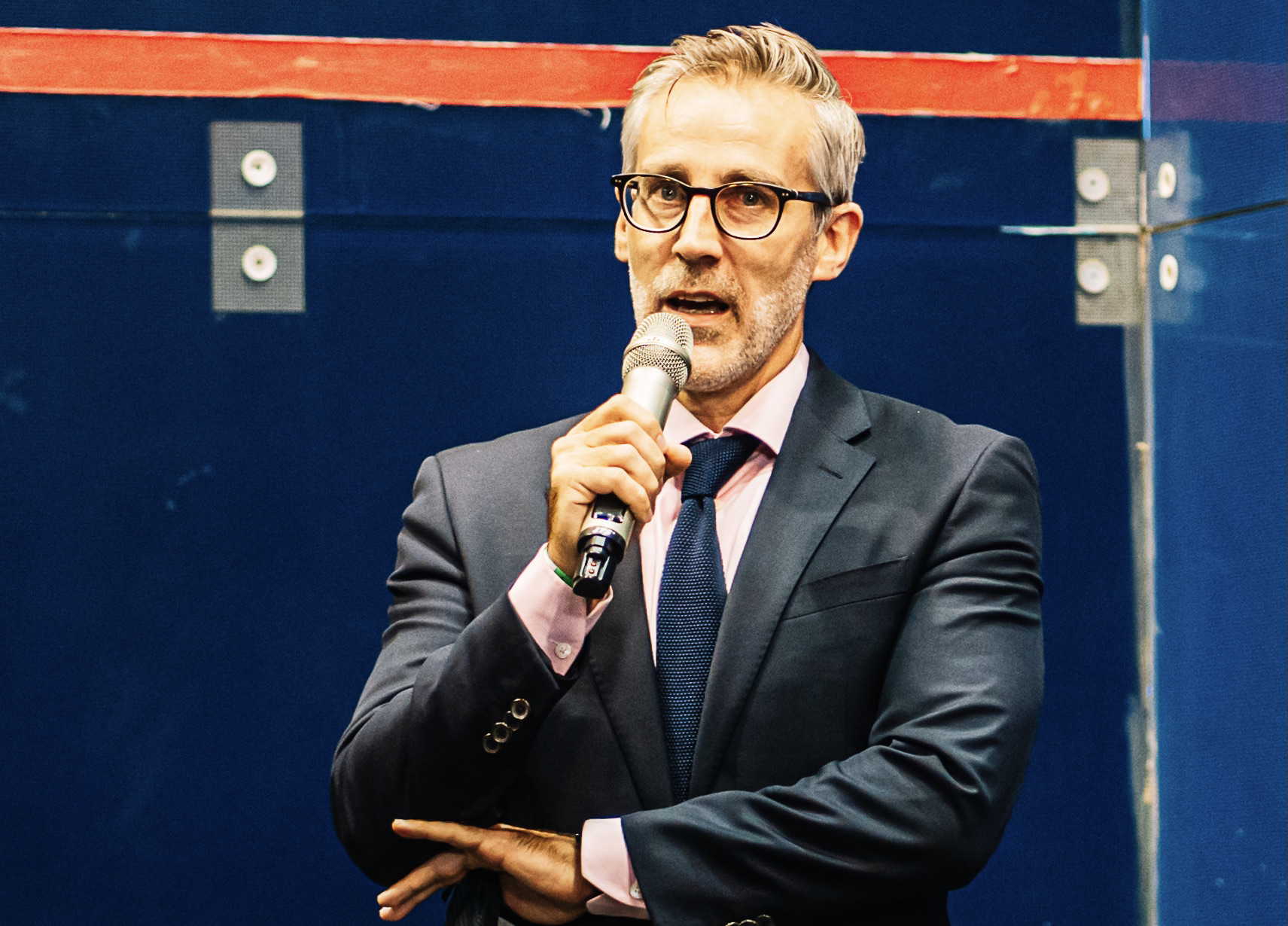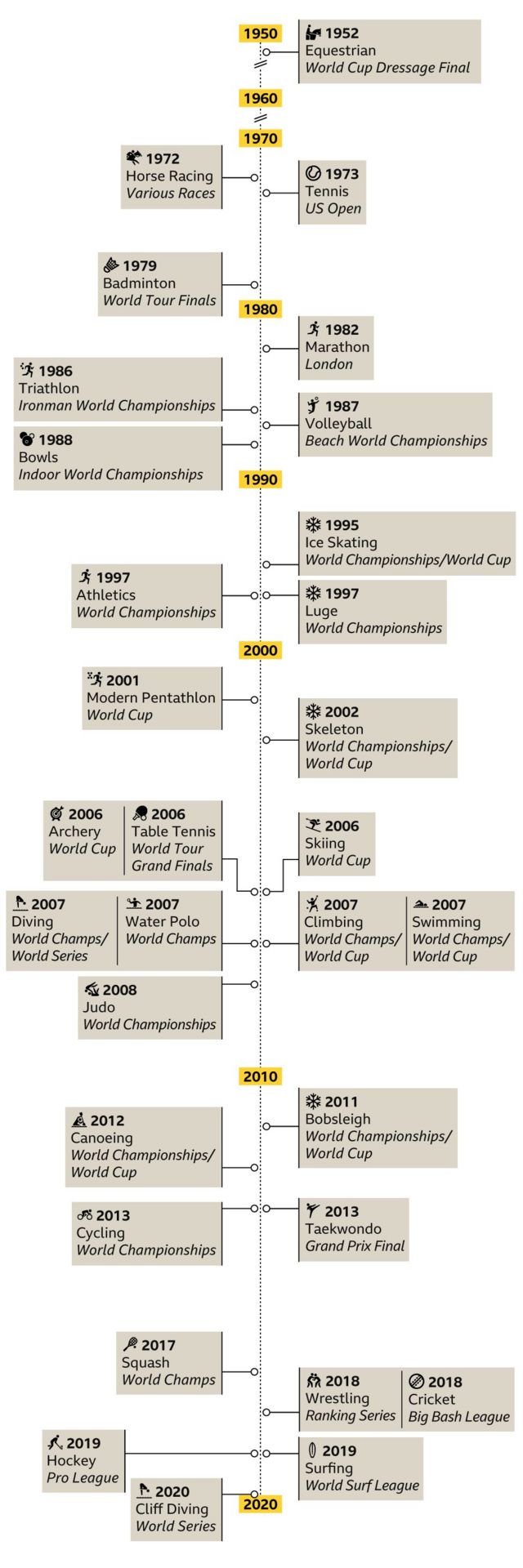PSA lead the way on funding ‘without cannibalising men’s events’
By ANDY WHIPP – Squash Mad Columnist
I’m constantly thinking of ways to grow our sport and one thing I’ve been reading up on is equal prize money. “But we have equal prize money,” I hear you say. Yes we do, but do we use it properly?
Firstly, let’s look at the gender equality in sporting pay. Gender pay equality is an increasingly dominant issue in world sport, highlighted recently when the World Cup-winning US women’s national football team filed a gender discrimination lawsuit against US Soccer over unequal pay.
Most sports now offer equal prize money for men and women, at least for their flagship events – and squash is one of these sports. The 2017 British Open and World Open both had equal prize money for the men’s and women’s winners for the first time in our history.
Squash was several years behind a lot of sports but also made the switch at a good time – a time where gender equal pay was in the news a lot and pressure was on sports to make the move.
The PSA made the move just in time and received some good press because of it, often being referred to by the BBC and other major news outlets at the time.
The PSA World Championships are heading back to Chicago in July. Once again there will be a million-dollar prize fund split equally between the top men and women following the first backing of the event by the Walter family in 2019.
Five years after merging the men’s and women’s tours (in 2014) and a few years after the move was made by the PSA to introduce equal prize money for the major tournaments, they saw their turnover increase 237%.
“We have not cannibalised any of the men’s prize money to subsidise the women’s,” PSA chief executive Alex Gough said.

“We set the level (of prize money at events) and we’ve been successful at attracting more tournaments, so the prize money has gone up that way. There is a bit more profile so our commercials have gone up and up much more considerably.”
Participation numbers are up too and this has translated into a 36% increase in five years in the number of professional players. Those female players are earning 65.7% more than they were five years ago. Obviously this just refers to women joining the PSA – and does not refer to squash participation numbers as a whole, just professionals – but it’s a good sign.
Now, how can squash use this to grow our sport?
Equal prize-money encourages not just more women to turn professional, but it encourages girls to take up the sport – and that’s what squash needs. Girls picking up a racket and walking on a squash court for the first time. We need this happening day-in day-out.
Knowing a lucrative career can be made from a particular sport, especially one as enjoyable as squash is a massive draw for girls to pick up a racket, and then to pursue it as a sport into their teens when there will be competition from several other sports.
This is why I feel squash must use this in all advertising. Not just the PSA but every governing body. I know some may want to shy away from the financial aspects when attracting children to play – thinking the financial rewards is information required only when players reach a certain standard and that advertising financial gain is a vulgar way to market a sport to youngsters – but advertising a possible wealthy career is definitely a draw to kids.
 Also – equal prize money is a no-brainer for sponsors. What company wouldn’t want a chance to be associated with a wholesome and relevant cause?
Also – equal prize money is a no-brainer for sponsors. What company wouldn’t want a chance to be associated with a wholesome and relevant cause?
“In simplest terms, sponsorship is a demonstration of a brand in action and an investment in shared values – or at least the values that a business or brand can credibly aspire to,” said Jonathan Izzard, sponsorship expert from Reckoner Strategy.
“In purely practical marketing terms, by being involved in a sponsorship like this – with perhaps your brand’s investment making equal prize money a possibility – you have an active role in this positive change to talk about.
“Imagine being the brand that is able to go out with the message that you helped this happen. That’s why equal prize money is such a no-brainer for sponsors.”
So we can see that companies will want to be involved with squash because it looks good for them. This gives squash a chance to attract new sponsors – BUT we must try new avenues. Approach companies we never have before. Companies will not come to squash asking. Squash must ask them, and I’m sure they will find the response will be mainly positive.
The PSA are doing their bit, but are other squash organisations? Use the media. Don’t shy away from marketing what we have to sell.
My observation is that squash does not know how to sell itself. Equal prize money IS one of our main selling points – to sponsors and to grow our junior participation numbers.
I’ve mentioned before how one of the key areas to grow squash all over the world is to attract more girls to the sport. Equal prize money can do this. The PSA has recognised the importance of this area. They’re funding women’s exhibition matches and women-led squash clinics – specifically targeting girls to take up squash. Offering up some of our top professional ladies to inspire girls to play squash.
This responsibility should not lie solely with the PSA. Surely this is more down to national governing bodies? Why do they not do more?
How Andy Whipp can help your club
AWsome Sports creator Andy Whipp is now offering squash consultancy / sports club consultancy. Given his many years’ experience of all things squash at every level of the sport, and after countless people asking for his advice on a range of squash and club matters, he has decided to use his expertise to offer a FREE squash consultancy service.
AWsome Sports are happy to help with league and club committee ideas and decisions, as well as squash advice to parents and professionals.
So if you need some general advice, inspiration, fresh ideas, or a mediator for your club or league committee debates – please contact Andy at [email protected] for more information.
Pictures courtesy of PSA


